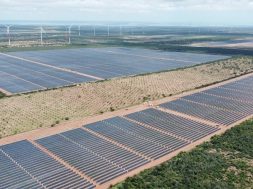
India’s clean energy project developers are in talks to merge their portfolios as part of a strategy to achieve scale for selling the assets to overseas investors scouting for large investment opportunities in the country.
A case in point is Ravi Jhunjhunwala’s LNJ Bhilwara Group, which is in talks with rivals to merge its wind energy portfolio. Another company following this strategy is Continuum Wind Energy Pte Ltd.
Mint reported on 20 February about LNJ Bhilwara Group putting up its wind energy portfolio for sale and hiring Yes Bank Ltd to manage the sale. “The idea here is to create and offer a portfolio which is large and is of interest to big investors,” said a New Delhi-based clean energy projects deal maker aware of LNJ Bhilwara Group’s strategy, requesting anonymity.
Another person who also didn’t wish to be named confirmed LNJ Bhilwara Group’s plan and added several firms such as Continuum Wind Energy are exploring a similar strategy. Morgan Stanley Infrastructure Partners invested $212.03 million in Continuum Wind Energy in 2012.
Queries emailed to the spokespersons for LNJ Bhilwara Group and Morgan Stanley remained unanswered. A Yes Bank spokesperson declined to comment in an emailed response.
There has been a host of investors such as Australian Government Future Fund, Investment Corporation of Dubai, Singapore’s GIC Pte Ltd, Abu Dhabi Investment Authority and Abu Dhabi’s Mubadala Development Co. looking to invest in the Indian infrastructure space in sectors such as clean energy. Wind power tariffs have followed the solar route and fell to a record low of Rs3.46 per kilowatt hour (kWh) in a 1 gigawatt (GW) tender by state-run Solar Energy Corp. of India in February. India plans to install 175GW of renewable power by 2022, of which 100GW will be from solar power and 60GW from wind power.
Wind is already the mainstay of India’s renewable power. Of about 50,018MW of installed renewable power, about 57.3% (28,700MW) comes from wind alone. Also, India added a record 5,400MW of wind power in 2016-17, exceeding its 4,000MW target. However, a few concerns remain. Payment delays by distribution companies (discoms) to wind and solar projects in India is hurting project costs for companies and posing a challenge to the sector’s growth plans, Mercom Capital Group said in a report earlier this month.














